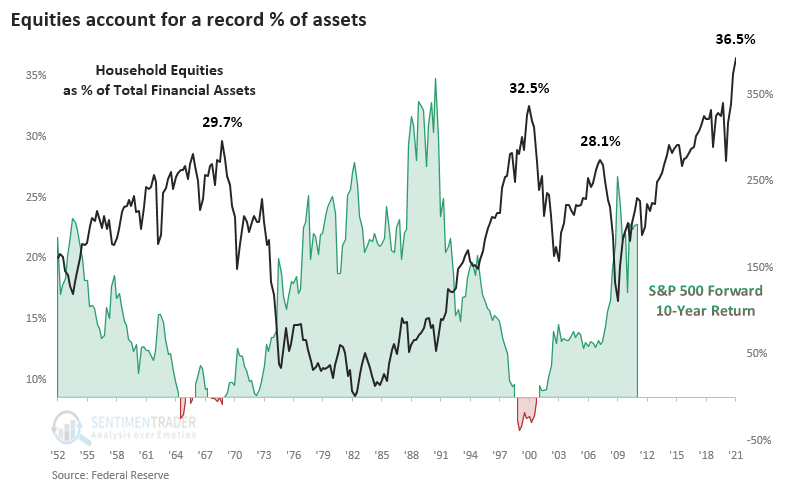This Indicator Predicts Stocks Will Lose 36% Through 2023 (by SentimenTrader)
Consumers are flush, and they've got a whole lot riding on markets.
The latest Federal Reserve data on household assets, just released with a delay for Q1, shows that once again, equities have pushed to a record relative to all household financial assets. At 36.5% of all assets, mutual funds and equities account for a greater share than any point since at least 1952.
The chart below shows this measure against the S&P 500's return over the next decade. There has been a clear negative correlation, meaning that as households allocate more of their assets to stocks, future returns on those stocks decrease.

A similar look at the data shows the thing but in an even more extreme way. Relative to the country's output, stock holdings have soared and far surpass any historical extreme. When looking at those correlations to future returns, it suggests a 36% loss for stocks over the next 2 years. Of course, it's been extreme since 2015, so anyone using it as a bearish crutch has been hurting.
One of the largest asset allocators in the market, pension funds, also picked up their stock exposure. At nearly 81% of all assets, funds are nearing a record allocation to stocks.
There weren't many sectors that did well after peaks in the Equity / GDP Ratio. It's not a big surprise that the ones that held up the best tended to be more defensive.
No comments:
Post a Comment